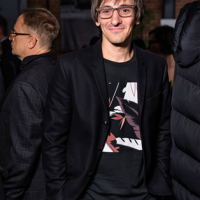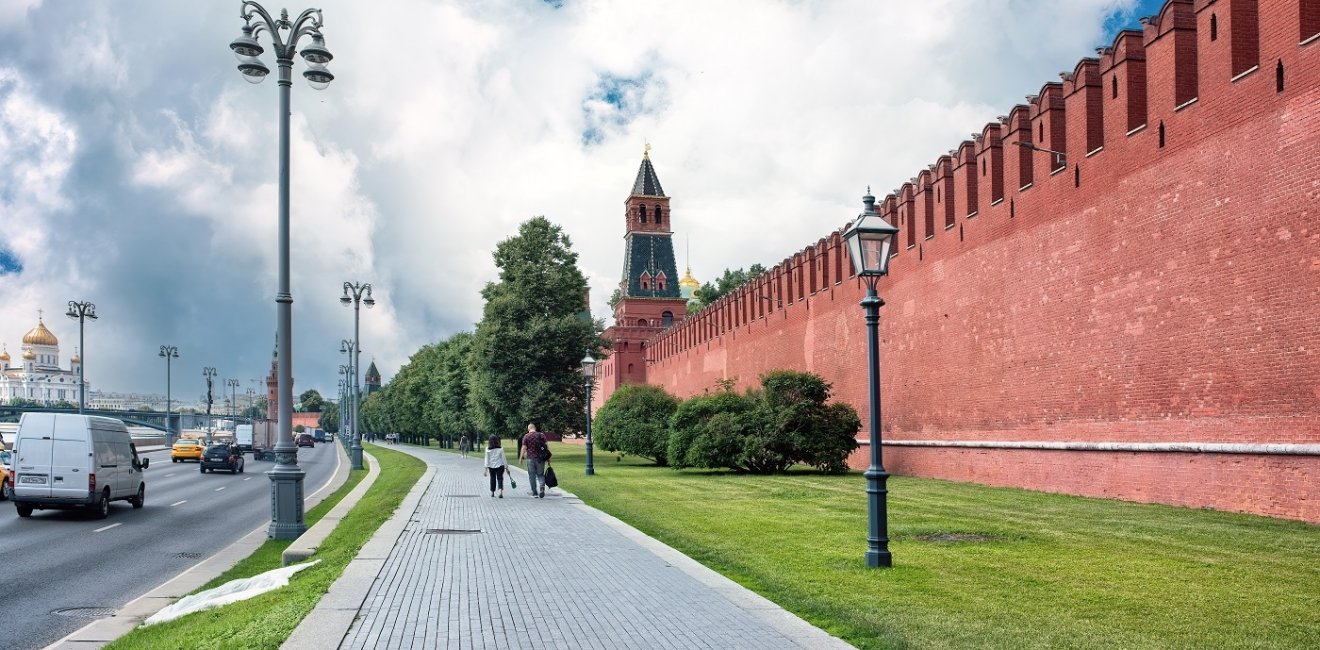
A blog of the Kennan Institute
BY MIKHAIL FISHMAN
In the 1990s, one of the dominant attitudes in the West with respect to Russia’s future was skepticism: consumed by the trauma of its own collapse, post-Soviet Russia would never transform into a developed democracy and a responsible player on the global stage. A former superpower haunted by the imperial syndrome, Russia had to be contained, as it would always be a danger to the world.
Today, Vladimir Putin’s full-scale invasion of Ukraine has proved the skeptics right. Putin’s attempt to destroy Ukraine has shown that Russia never freed itself from what it has been for centuries—a hostile, colonialist regime. Today, more than thirty years after its official demise, the Evil Empire is spreading death and violence in its final agony.
Putin’s war with Ukraine has already changed the world order: the West now sees Putin’s regime—and Russia—as an existential enemy. Before our eyes, Russia—and Russians—are being subjected to an unprecedented isolation. A new Iron Curtain is descending on Russia not so much from within as from without. The West effectively cut ties with Russia on every level. As the unprovoked and brutal war passes its half-year mark, the Russian polity is increasingly seen as responsible for it.
Putin’s War Politics
Vladimir Putin had various reasons to start the invasion. First, it was personal. He wanted to make Ukrainians pay for the multiple humiliating defeats he had suffered in Ukraine over the past twenty years. Second, it was strategic: after years of economic stagnation, Putin needed a victory in war to boost his authority and to secure his position as Russia’s absolute leader for an indefinite period of time.
He had learned from earlier adventures that it would work. His approval rating skyrocketed after Russia’s military invaded parts of Georgia in August 2008. In March 2014, after the annexation of Crimea, his approval rating went up 20 percent, creating a social phenomenon that political experts came to call the Crimea consensus. The pre-Crimea broad popular discontent dissolved over the course of fifteen days.
Unlike these short-term and manifestly successful military operations, Putin’s war with Ukraine has turned into a bloody war with no end in sight and no victory to showcase. Yet this war has still triggered positive emotions across the Russian nation. “It’s the same collective reaction as in 2008 and in 2014,” says Alexei Levinson, an expert at the Levada Center, an independent pollster. “Just as then, Russians seek pride in defying international norms and rules (established by the West, as they see it). They feel proud because they think this is how a superpower should act on the global stage.”
This positive reaction is largely shaped by propaganda, which conceals the death and destruction that the Russian military has wrought upon Ukraine and the war crimes it has committed on Ukrainian soil, and inverts its goals and nature. But propaganda is not omnipotent; it does not create a mindset out of nothing. Rather, it shapes and amplifies attitudes that have already taken root in the national consciousness. In Russia, great power ambitions date back centuries. Since World War II and through the Cold War, they essentially transformed into a concept of competition with the West, led by the United States. Putin appeals to these feelings when he falsely frames his invasion as the liberation of Ukraine—“a part of Greater Russia”—from its occupation by the West.
Russians Adapt Rather Than Resist
Yet support for the war across Russian society is far from absolute. According to one of the latest polls, while 60 percent would support Putin’s decision to advance on Kyiv, 65 percent would be happy if he stopped the war and made peace with Ukraine. If anything, these findings, however self-contradictory they may seem to an outside observer, demonstrate that Putin’s war is not massively backed by Russians. The hawkish, warmongering sector of Russian society is rather narrow. The majority finds the easiest way out is to adapt to a situation it can’t affect, and shift responsibility to the government. Adapting has always been a key requisite of social life in Russia, but now the situation is different: people are adapting to horrible circumstances as their government destroys a neighboring country.
In 1990–1991, the new Russia, emerging out of the debris of the unraveling USSR, consciously left behind its imperial role. Back then, it was a pragmatic approach as well as a social demand. Russia’s new elites intended to entrench on a national level in order to sideline the Soviet leadership. Russian society, in turn, believed that the country would thrive once freed from the burden of financially supporting the former Soviet republics.
It was a quest for freedom too. In January 1991, after the Soviet military assaulted Vilnius in what would prove to be the death throes of the Soviet regime, hundreds of thousands of Muscovites took to the streets to express solidarity with Lithuania’s independence. And Boris Yeltsin was not just leveraging Russia’s sovereignty in his power contest with Mikhail Gorbachev. “He opted against a neo-USSR because he was opting for a Russian state—self-standing, governable, and capable of modernization and normalization. To put it another way, he opted for nation-building over empire-saving,” writes Timothy Colton in his definitive biography, Yeltsin: A Life.
Yeltsin’s government started moving in this direction and launched ambitious economic reforms, but the harsh socioeconomic context almost immediately triggered the great power syndrome. By the end of 1993, Yeltsin’s government was surrounded by populists grieving for Russia’s past greatness.
Yeltsin’s Imperial Backsliding
Yeltsin partly succumbed to this pressure. Throughout his rule, his political line pivoted toward Soviet patterns and policies of the past. His war in Chechnya was seen as a political response to imperial demand. This war was “an attempt to take over oppositional voters, an attempt to get a lost land back into the Empire’s fold,” says Alexander Cherkasov, one of the founders of Memorial Human Rights Center (closed by authorities in December 2021).
In 1996, the start of the integration process with Belarus and Belarusian president Alexander Lukashenko, by then already a dictator, was meant to counterbalance an overwhelming nostalgia for the Soviet past. Yet these revisionist efforts were very different in substance from what Vladimir Putin would set as his political platform a decade later.
Politically, Yeltsin’s war in Chechnya was at least as much a populist venture as it was an attempt to restore law and order in one of the Russian regions, turned by its nationalist—and illegitimate—leadership into a failed state. As for the Russia-Belarus Union State project, Yeltsin did not use it to his personal advantage. On the contrary, it was Lukashenko who pushed for integration, setting his sights on the Russian throne.
In 1994, Yeltsin signed the Budapest Memorandum, which guaranteed the integrity of Ukraine’s borders in exchange for Kyiv giving up its nuclear arsenal. In 1997, he signed a friendship treaty between Russia and Ukraine, in which both sides committed to respecting each other’s borders and territorial integrity (Ukraine would officially terminate this treaty in 2018).
In 1997, Yeltsin urged U.S. president Bill Clinton not to accept Ukraine and Baltic states into NATO. In 1999, he was happy Russia “gave NATO a flick on the nose” when Russia’s military deployed at Kosovo’s airport after NATO initiated a bombing campaign against Milošević in Yugoslavia. “Russia was not defeated morally,” he later explained. It was Yeltsin who felt morally defeated. Toward the end of his rule Yeltsin was intuitively backsliding into the familiar formulas of the bipolar world he knew from his Soviet past. But for him, it was more mental therapy than an attempt to redraw the world map. He left at the right time. Had Boris Yeltsin stayed on as Russia’s leader for decades, this nostalgic path could have led him into a military crisis.
Putin Takes a Nation Hostage
Had Vladimir Putin really quit in 2008, after fulfilling his constitutionally limited two consecutive terms as president, the war with Ukraine would never have happened. His successor, Dmitry Medvedev, launched a reset with the West. In 2010, NATO and Russia were moving toward a strategic partnership. The EU was seriously contemplating establishing a visa-free regime with Russia. But in 2012 all these plans were shattered when Putin returned to the Kremlin on the promise of restoring the empire. He introduced the concept of a historically “Greater Russia, which emerged in its original form in the eighteenth century.” And he announced a “Eurasian Union” as the target of an amplified integration process with the post-Soviet space. The stage for expansion—and, ultimately, for war—had been set.
Putin’s geopolitical vision led first to the Euromaidan and the Revolution of Dignity in Ukraine in February 2014. Then, in retaliation for Ukrainian resistance, Putin annexed Crimea and occupied parts of the Donbas. In 2020 he pushed through a new constitution that allowed him to stay in power until 2036. Two years later, he launched a military invasion of Ukraine.
If Russia were a democracy, it would make sense to blame Russians for all the suffering their government has brought down on the Ukrainian people and for the fear it inspires in Europe. But Russia is a tyranny. Acceptance of Putin’s war is shaped not only by massive propaganda, which resonates with the national sentiment and desire for recognition of great power status, but also by repressions on a scale not seen even in late Soviet times. Activists and dissidents are jailed. All protesting voices are silenced. Opposition is destroyed. Elections at all levels are rigged to create an illusion of unanimous support for Putin’s ambition. As a result, Russians know they have no real choice other than to adapt to the new reality.
The great power syndrome is a dangerous social emotion. It makes bloody conflicts possible. But it’s oppression, despotism, and the indefinite personal rule that make conflict inevitable, taking a nation hostage.
The opinions expressed in this article are those solely of the author and do not reflect the views of the Kennan Institute.
Author

Russian Journalist and Filmmaker

Kennan Institute
After more than 50 years as a vital part of the Wilson Center legacy, the Kennan Institute has become an independent think tank. You can find the current website for the Kennan Institute at kennaninstitute.org. Please look for future announcements about partnership activities between the Wilson Center and the Kennan Institute at Wilson Center Press Room. The Kennan Institute is the premier US center for advanced research on Eurasia and the oldest and largest regional program at the Woodrow Wilson International Center for Scholars. The Kennan Institute is committed to improving American understanding of Russia, Ukraine, Central Asia, the South Caucasus, and the surrounding region through research and exchange. Read more

Explore More in The Russia File
Browse The Russia File
Chechnya as a Model of Modern Russia

Russia’s Indigenous Communities and the War in Ukraine

Gas and Power in a Changing US–Russia Relationship

